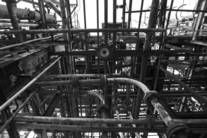
www.unimondo.org/Guide/Diritti-umani/Diritti-delle-minoranze/Scotland-says-No-the-EU-says-Maybe-147906
Scotland says No, the EU says Maybe
Diritti delle minoranze
Stampa
When Scotland voted No to independence on 19 September, multiple voices of approval were expressed in Brussels. The Scottish No leaves the EU “united, open and stronger” declared the head of the European Executive Manuel Barroso. Approval was also expressed by the President of the European Parliament, Martin Schultz, and by leader of the Socialist group, Gianni Pittella, who said: “the interests of Scotland will be better advocated in the European Union instead of facing global challenges as a small, independent state.”
However, for many Scots it was by voting yes to independence that they hoped to secure their long-term future in the EU. In August, Alex Salmond, leader of the Scottish National Party, declared on BBC radio programme “Good morning Scotland” that the politics of Euroscepticism emerging from Westminster were deeply damaging for Scotland, and could lead to Scotland being dragged out of Europe against the will of the people.
This view is borne out by an Ipsos MORI (a UK research company) poll conducted in 2013. The research revealed that a majority of Scots, while open to the idea of a referendum on Britain’s relationship with the EU, would vote to stay in, compared with only a minority in England.
Meanwhile, the Yes campaign had insisted that Scotland would have been able to retain its place within the EU as an independent state. The “Yes Scotland” website stated that the membership of Scotland in the EU would have been secured by the time Scotland was independent, foreseen for March 2016. This claim was backed up by Sionaidh Douglas-Scott, Professor of European and Human Rights Law at Oxford University, who declared that “any future independent Scotland’s EU membership should be assured, and its transition from EU membership qua part of the UK, to EU membership qua independent Scotland relatively smooth and straightforward”.
However, the question was not so straightforward in Brussels. Barroso, the outgoing EU President, told the BBC in February 2014 that it would be “difficult, if not impossible” for an independent Scotland to become an EU member. In September, closer to the date of the referendum, Commission spokeswoman Pia Ahrenkilde Hansen refused to comment when journalists asked during a press briefing what would happen if Scotland voted to secede from the United Kingdom.
Spanish Prime Minister Mariano Rajoy, who is strongly opposed to an independence referendum taking place in Catalonia, cast further doubt on the issue. He declared that if a “region” opted to leave a member state, then it would “remain outside the European Union”. The Scots were therefore left wondering whether they would have had to undergo the regular EU accession process for new member states, rather than a fast-track procedure.
What the Scottish referendum has shown is that the European Commission does not have a clear process for dealing with the accession of seceded states. Indeed, this ambiguity may be intentional. Brussels is caught between the need to provide clarity to aspiring member states, and the need not to offend Spain, Belgium and others by making the pathway to EU membership look too easy. However, it is a question that may have to be reopened in the coming years, particularly if the UK opts to leave the EU, reigniting the independence question in Scotland.
This publication is part of the project "BeEU- 8 Media outlet for 1 Parliament" and has been produced with the assistance of the European Parliament. The contents of this publication are the sole responsibility of OBC and Unimondo and can in no way be taken to reflect the views of the European Union












